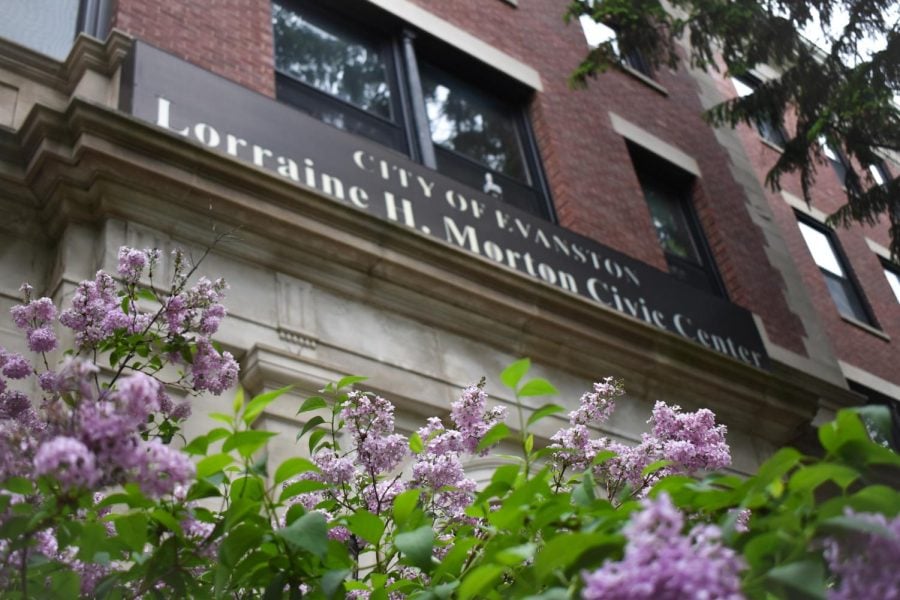City Council allocates additional funding from cannabis tax to reparations program
Daily file photo by Jacob Wendler
On Monday night, Evanston City Council discussed the 2024 proposed budget and discussed property tax increases.
August 8, 2022
City Council approved a resolution Monday that will allocate additional funding to the city’s reparations program to help pay the 138 remaining qualified recipients immediately as funds become available.
Resolution 64-R-22, which passed 6-0, will add funds of up to $3,450,000 to the Local Reparations Restorative Housing Program budget as the city collects money from its cannabis tax.
Last March, Evanston allocated $400,000 to the restorative housing program, a first step in the city’s larger reparations initiative, which aims to repair harm committed by the city against Black residents. The housing program seeks to distribute $25,000 to “ancestors” — Black Evanston residents who were at least 18 years old by 1969 — as well as their descendants.
The city announced the program’s first 16 recipients in January but has not announced any other recipients since then.
Residents showed concern at the meeting that the city’s distribution of reparations is moving too slowly, as eligible recipients must wait for the money from the cannabis tax to accumulate. A memo from Monday’s meeting said revenue from the cannabis tax is less than what was anticipated.
Claire McFarland Barber, a member of the Reparations Committee, emphasized the urgency of distributing funds, adding that four “ancestors” died between the deadline for applications in November 2021 and the first payments in January 2022.
“Hopefully these people can enjoy the distributions while they’re here,” McFarland Barber said. “We find it quite critical particularly because of the age group that we’re serving.”
Because Evanston only has one dispensary, Zen Leaf on Maple Avenue, a state law bars the city from sharing revenue estimates from the 3% cannabis tax, according to the memo. The memo stated that the Reparations Committee is exploring alternative revenue sources to fund the payments.
Tasheik Kerr, assistant to the city manager, disclosed that the balance of the reparations fund is more than $25,000.
Ald. Devon Reid (8th) suggested that the city “mix up the funds” by using some money from the city’s general fund and some money from the cannabis tax.
“That way, we can make sure that our ancestors — these are folks who are over 70 — are receiving the money in the most timely fashion without having to worry about creating a potential liability for the city,” Reid said.
Chief Financial Officer Hitesh Desai reported that the city has a general fund balance of $47,619,230 so far in 2022. A fund balance is a calculation of all of the city’s revenues minus its expenditures.
Carlis Sutton, a member of the Reparations Committee, encouraged the city to get the reparations payments into the hands of recipients as soon as possible. He claimed an additional ancestor who was approved for the reparations program died yesterday.
“Now that’s one other person because of your deliberations because of not getting (your) response distributed,” Sutton said. “Many of the ancestors have been adversely affected and five have already died.”


